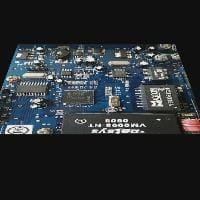(LUXEMBOURG) -The EU’s top Court ordered a review Thursday of a fine imposed on Infineon Technologies for taking part in a cartel in the smart card chip market to fine imposed, and dismissed an appeal lodged by Philips.
The Commission imposed fines in 2014 totalling approximately 138 million on several companies for having coordinated, from 2003 to 2005, their pricing policy in the smart card chip sector in the European Economic Area (EEA). The cartel functioned through a network of bilateral contacts and exchanges among the undertakings of commercially sensitive information relating in particular to prices.
As regards the calculation of the fines, Renesas was granted immunity for having informed the Commission of the existence of the cartel. Infineon obtained a reduction of 20% because its participation was limited to the arrangements with Samsung and Renesas, while Samsung obtained a reduction of 30% for having provided information with significant added value. The Commission thus imposed a fine of 82 784 000 on Infineon and 20 148 000 on Phillips, those undertakings not having been eligible for any reduction of the fine under the Leniency Notice.
Infineon and Philips brought actions before the General Court seeking the annulment of the Commission’s decision. Those undertakings contested, in essence, firstly, the existence of a cartel, and, secondly, the amounts of the fines imposed on them.
In a 2016 judgment, the General Court dismissed the actions and upheld the fines imposed on Infineon and Philips by the Commission.
Infineon and Philips then lodged appeals against the judgments of the General Court before the Court of Justice.
Infineon complaines, in particular, that the General Court examined only five of the eleven allegedly illegal contacts found by the Commission whereas Infineon had disputed all those contacts. According to Infineon, that incomplete judicial review of the decision led to an insufficient review of the fine.
For its part, Philips disputed the General Court’s assessment of the existence of a cartel and the amount of the fine imposed.
In today’s judgment in Case C-99/17 P Infineon Technologies, the Court found that, in order to satisfy the requirements of a review in the exercise of its unlimited jurisdiction with regard to the fine, the EU judicature is bound to examine all complaints based on issues of fact and law which seek to show that the amount of the fine is not commensurate with the gravity or the duration of the infringement. The factors which must be taken into account in the context of the assessment of the amount of the fine include the number and intensity of the incidents of anticompetitive conduct.
The Court notes that it is apparent from the decision at issue that the Commission found the existence of a single and continuous infringement on account of the eleven bilateral contacts between Infineon and Samsung and Renesas. Before the General Court, Infineon disputed the Commission’s assessment on each of those contacts, and criticised the calculation of the amount of the fine that was imposed on it. Infineon had therefore requested the General Court to examine its actual participation in the infringement and the precise extent thereof.
The Court finds that, although, for the purpose of assessing the gravity of the infringement committed by the applicant and setting the amount of the fine, the General Court is not required to rely on the exact number of bilateral contacts, that factor may constitute a relevant factor among others.
Consequently, the General Court was not entitled, without misconstruing the extent of its unlimited jurisdiction, to refrain from responding to the argument raised by Infineon according to which the Commission had infringed the principle of proportionality by setting the amount of the fine without taking into account the small number of contacts in which Infineon participated. That conclusion is all the more compelling given that, in the present case, the General Court confined itself to confirming five of the eleven contacts found in the Commission’s decision, whilst leaving open the question whether the Commission had also established the existence of the six other contacts found.
The Court therefore sets aside the judgment of the General Court inasmuch as it is vitiated by an error of law as regards the General Court’s exercise of its unlimited jurisdiction.
The Court refers the case back to the General Court to assess the proportionality of the fine imposed in relation to the number of contacts found against Infineon, if necessary by examining whether the Commission established the six contacts on which the General Court has not yet adjudicated.
In Case C-98/17 P Koninklijke Philips NV and Philips France, the Court dismisses the appeal in its entirety. The Court therefore upholds the Commission’s decision and the fine that it imposed on Koninklijke Philips NV and Philips France.


